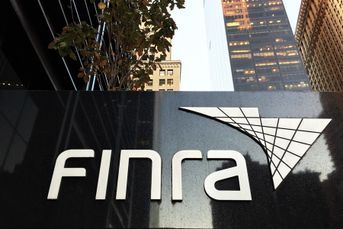The indie channel’s future
Considering the economy, the state of the stock market and the public's perception of Wall Street, the immediate outlook for the independent-brokerage business — like most financial services businesses — is anything but glowing.
Considering the economy, the state of the stock market and the public’s perception of Wall Street, the immediate outlook for the independent-brokerage business — like most financial services businesses — is anything but glowing.
But even if the gloom and doom are given their due, we should remember that the independent-broker-dealer business has experienced bad times before and emerged stronger.
Consider the bursting of the dot-com bubble, for instance. The market began to fall in January 2000 and kept declining until October 2002.
During that period, the Dow Jones Industrial Average fell 37.8%.
Although many independent broker-dealers struggled in those years, the business as a whole came out of the experience poised for growth. Even before the onset of the “great recession,” independents had caught up to the wirehouse and regional-firm channel in terms of number of representatives, and breadth and depth of product.
During the past 10 years, the industry also has emerged as a business with distinct characteristics and needs.
Independent firms now have two organizations that represent their interests specifically — the Financial Services Institute Inc. in Atlanta and the National Association of Independent Broker-Dealers in San Diego. That these groups exist and are growing is a sign of the maturity and permanence of the independent channel.
By contrast, look what has happened to the wirehouse sector, which long has been what the investing public thinks of as Wall Street.
In addition to suffering a bruising attack on their reputations, many of the biggest and best of Wall Street are out of business. Although small players in retail wealth management, The Bear Stearns Cos. Inc. and Lehman Brothers Holdings Inc., both of New York, are gone.
Merrill Lynch & Co. Inc. and Citigroup Inc.’s Smith Barney brokerage business, both of New York, were the largest and third-largest securities firms, respectively, in 2002, according to the Securities Industry and Financial Markets Association of New York and Washington. But as we all know, they are now part of other companies.
Size, therefore, while it has its advantages, doesn’t ensure success. In fact, size poses its own challenges.
Let’s look at the challenges faced by three of the largest owners of independent-brokerage firms: LPL Financial of Boston, AIG Advisor Group and Raymond James Financial Services Inc. of St. Petersburg, Fla.
In 2002, LPL Financial had 4,369 reps. Today it has more than 11,000 affiliated reps.
How did the firm do it?
LPL, as we all know, made a series of acquisitions. The most notable of these was the acquisition of the three broker-dealers from Pacific Life Co. of Newport Beach, Calif., in 2006.
Now everyone in the industry is waiting for LPL to become a public company.
In the meantime, LPL is coming to grips with its size. At the end of last year, it laid off 10% of its work force, the first time that it made such a move.
Many wonder how the job cuts will affect service to LPL’s advisers and whether the firm’s two private-equity owners, San Francisco-based Hellman & Friedman LLC and Fort Worth, Texas-based TPG, which bought a little more than 60% of the company in 2005, are calling the shots.
Raymond James Financial Services, tied for third in size, stepped up its recruiting in 2006. Three years into the effort, the company said that it is seeing record interest from potential recruits, despite this awful market.
Finally, there is the second-largest collection of independent firms, the AIG Advisor Group. The group’s constituent firms are on the block as part of a widespread corporate sell-off program to return to the federal government some of the billions of dollars in rescue money AIG has received.
Although poised for growth since 2002, events seemed to keep getting in the AIG Advisor Group’s way. Each broker-dealer lost its chief executive, and then calamity befell its corporate parent. The most likely outcome is a scrambling of the group’s firms into other leading independent entities.
What of the other independent broker-dealers?
Based on recent history, there are three general paths.
First, there will be those broker-dealers that grow organically, with capital coming from internally generated sources as the market recovers, and also from outsiders. However, that course brings the challenge of whether the capital necessary to grow comes with a loss of control.
The second path involves bringing in new management and changing policies and procedures. This path often means severing relationships with friends and co-workers and dipping into untested waters. It’s uncomfortable and wrenching.
Finally, firms can decide to keep their heads down, do what they’ve always done and hope for the best. That sometimes works and sometimes doesn’t.
Only hindsight can tell which path is the right one.
This column was adapted from remarks delivered at the recent spring meeting of the National Association of Independent Broker-Dealers in Santa Monica, Calif.
E-mail Bruce Kelly at [email protected].
Learn more about reprints and licensing for this article.







